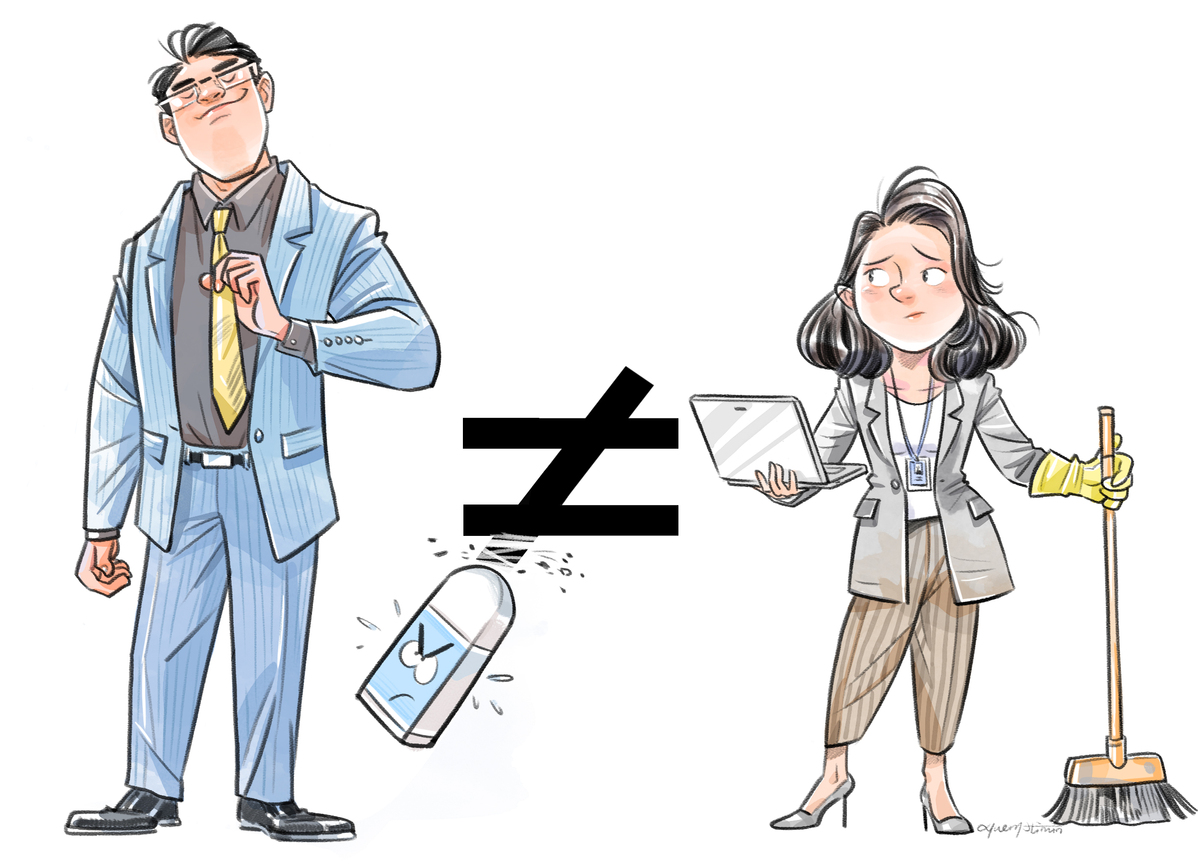Gender equality to take 135 years to achieve


The time it will take the world to achieve gender equality has increased from 99.5 years to more than 135 years with the COVID-19 pandemic taking its toll, according to the World Economic Forum's Global Gender Gap Report 2021.
Examining 156 countries, the report found that, despite progress in education and health, women are still faced with economic hurdles, declining political participation and workplace challenges.
The pandemic has worsened the situation, and the report noted that progress toward gender equality is stalling partly due to women being more frequently employed in sectors hardest hit by lockdowns, such as the consumer sector, combined with the additional pressures of providing care at home.
"The pandemic has fundamentally impacted gender equality in both the workplace and the home, rolling back years of progress. If we want a dynamic future economy, it is vital for women to be represented in the jobs of tomorrow," said Saadia Zahidi, managing director of World Economic Forum.
"Now, more than ever, it is crucial to focus leadership attention, commit to firm targets and mobilize resources. This is the moment to embed gender parity by design into the recovery."
The deterioration in 2021 is partly attributed to a widening political gender gap in several large population countries.
Women still only hold 26.1 percent of parliamentary seats and 22.6 percent of ministerial positions worldwide, the report said. The political gender gap is expected to take 145.5 years to close, compared to 95 years in the 2020 edition of the report, if it stays on its current trajectory.
The economic gender gap has seen only a marginal improvement since the 2020 edition and is expected to take another 267.6 years to close.
As the job market recovers from the effects of the pandemic, LinkedIn data shows that women are being hired at a slower rate in multiple industries, the report pointed out. It said they are also less likely to be hired for leadership roles, resulting in a reversal of up to two years' progress.
Sectors with historically low representation of women are also those with fast-growing "jobs of tomorrow", such as cloud computing, where women make up 14 percent of the workforce, and engineering where it is only 20 percent.
Sue Duke, head of Global Public Policy, at LinkedIn, said: "Women aren't well represented in the majority of fast-growing roles, which means we are storing up even bigger gender representation problems as we emerge from the pandemic. These roles play a significant part in shaping all aspects of technology and how it is deployed in the world. We simply have to have women's voices and perspectives represented at this foundational stage, especially as digitization is accelerating."
The report, now in its 15th edition, revealed that Iceland remains the world's most gender-equal country, followed by Finland, Norway, New Zealand and Sweden.
The five most improved countries in the overall index in 2021 are Lithuania, Serbia, Timor-Leste, Togo and United Arab Emirates, having narrowed their gender gaps by at least 4.4 percentage points.































